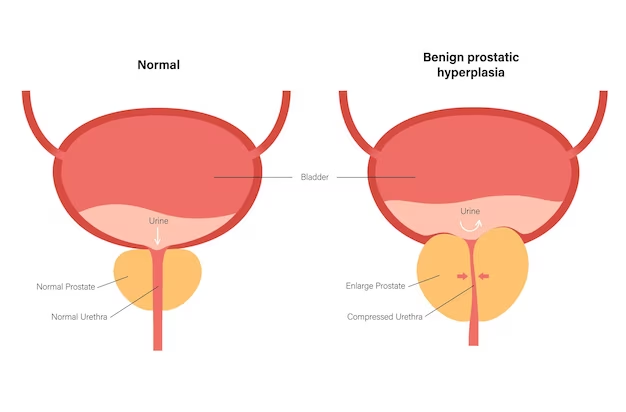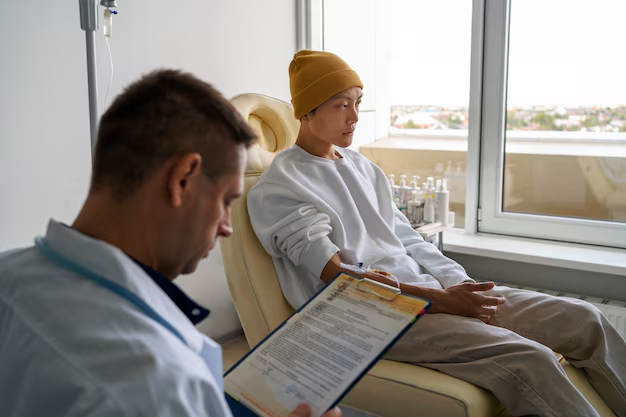What Is a Prostate Cancer Disease?
Prostate cancer is the most common type of cancer among men which occurs abnormal cells develop in the prostate gland. From there it can spread to other parts of the body through the blood vessels. Speared cancerous cells may attached to the nearby or distant organs. Treatment options for prostat cancer depends on the varios factors including grade and stage of the cancer, age of the patient and general health status of the patient. The stage is determined by the size of the tumor and whether it has spread the lymph nodes or other organs.Treatment options for prostate cancer are surgery, chemotherapy, cryotherapy, hormonal therapy and radiotherapy. In some cases, doctors recommend “watchful waiting”.
When the prostat cancer detected in early stages there is a huge possibility of recovery. However it is difficult for a men to detect the prostat cancer in early stages by himself as it doesn’t causes any syptoms.

Many prostate cancers grow slowly and cause no early symptoms threfore our surgeons recommend prostate cancer screening to our patients in their 50s, or earlier who have risk factors. However, high grade cancers spreads quickly and can become life threatening.
During the physical examination if our doctor finds abnormalities on the prostat or PSA test detects an abnormality, he recommends further tests such as ultrasound, prostate biopsy and MRI. If the presence of cancer confirmed some additional analysis will be ordered to determine the most appropriate tratment options for the patients individual situation.
Today, Turkey’s private hospitals offer the most advanced medical treatments and technology available in the world. In order to guarantee that our patients get reliable and effective medical care we are carrefully sellecting best doctors and top hospitals to be part of our exclusive network. Our patients never have to wait for any waiting lists, preventing further uneasiness, discomfort and additional health risks.
Prostat cancer can be treated by the combination of surgery, chemotherapy and radiotherapy. The goal of the treatment is remove the cancer and relieve the symptoms.

SURGERY FOR PROSTAT CANCER
Surgery is the primary treatment option for patients who are diagnosed with prostat cancer if the cancer is not spread outside the prostate gland. The type of the surgery determined by the surgeon depending on the size of the tumour and whether it has spread to the lymph nodes. Surgery involves with removing the prostate gland (radical prostatectomy), some surrounding tissue and nearby lymph nodes. Radical prostatectomy can be performed laparoscopically or with Da Vinci robotic surgery system. Our pool of highly trained general surgeons committed to providing excellent surgical services to our patients.
During the preoperative consultation, our surgeon will review the patient’s history, medical records, PSA values and radiological images. After that if the surgeon decides that you are a candidate for radical prostatectomy, he will inform you detaily about the surgical options. There are three types of procedures, one them is a traditional approach known as open prostatectomy others are minimally invasive procedures; laparoscopic prostatectomy and robot-assisted laparoscopic prostatectomy.
Surgical options for prostat cancer are;
Radical (open) Prostatectomy
This is traditional method of radical prostatectomy. The procedure is performed by making an 8- to 10-inch incision in the lower abdomen. The surgeon operates through this a single to remove the whole prostate, some surrounding tissue and nearby lymph nodes
Nerve-Sparing Robotic Radical Prostatectomy:
Robotic radical prostatectomy is a type of minimally invasive surgery which uses a state-of-the-art robotic system, called the daVinci Surgical System to remove the entire prostate. DaVinci robot provides 3-dimensional vision during the surgery and allows surgeons to operate with its robotic arms through small ports.
Compared with open surgery, da Vinci robotic radical prostatectomy procedure offers many benefits over open surgery, including;
- Short hospital stay
- Reduced pain and discomfort
- Faster recovery time
- Smaller incisions,
- Less blood loss and transfusions
- Minimal scarring
Laparoscopic Prostatectomy
This is a common minimally invasive surgery. It involves a few key hole incisions in order to remove the entire prostate. Laparoscopic surgery eliminates the need for large incision. So, the procedure offers to patient’s less pain and scarring, shorter recovery time , and less risk of infection.
Surgeons in our exclusive network are among the Turkey’s most successful providers of prostat cancer surgeries. Specializing in prostat surgery our highly-experienced surgeons perform a wide variety of surgeries from minor procedures to extremely complicated surgeries that require extensive inpatient management and treatments.

We pride ourselves on helping to our patients to find the options of care which are the safest, modern and most minimally-invasive. Our surgeons have been at the forefront of utilizing the latest minimally invasive surgical techniques, including robotic-assisted laparoscopic surgery, to help our patients. Minimally invasive surgical technique is less invasive than open surgery, reducing the risk of infection, minimizing scarring and patients recover from surgery more quickly.
During the consultation to determine the most appropriate surgical options for the patients individual situation, our surgeon will provide detailed information about the planned operation and post-operative care and the recovery process

RADIOTHERAPY FOR PROSTATE CANCER
Radiotherapy also called radiation therapy uses low dose radiation rays to destroy the cancer cells remaining after the surgery. In addition to other treatments in some cases depending on the type of the surgery that patient had and the stage of the cancer, the treatment continious with radiaotherapy and chemotherapy. Radiation treatments usually starts about two weeks to one month after the surgery depending on the healing process of the operation site.
Prostate cancer radiotherapy can be delivered via external beam radiation or brachytherapy. The treatment is providing with a machine called linear accelerator. It is delivered once in a day and five days in a week (Monday through Friday) for three to six weeks. Each session will take only a few minutes.
IMRT (Intensity modulated Radiotherapy) for prostate cancer.
Intensity modulated radiation therapy is done by a machine called a linear accelerator which delivers radiation rays from different directions to the target tumor while avoiding nearby healthy tissues. IMRT allows to reduce the damage to healthy tissues and minimize the side effects. IMRT is very useful to treat cancer with high doses of radiation at the prostate without increasing the risk of damaging nearby organs.Treatment is delivered once in a day and five days in a week, for six weeks.
Through our network hospitals we are pleased to provide immediate access to cancer treatment at affordable prices. Patients can rest assured that that we will collaborate and explore all treatment options, providing the best care available.

CHEMOTHERAPY FOR PROSTATE CANCER
Chemotherapy may be a treatment option if the prostat cancer spread in the body and if it doesn’t responds to hormone therapy.Chemotherapy simply means ‘drug treatment’ and aims to cure cancer or relieve any symptoms that cancer can cause. Chemotherapy teratment is not used for all women who are suffering from breast cancer. Chemotherapy uses anti cancer medications to destroy cancer cells. The medications circulate throug the body in the bloodstream and destroy the fast-growing cancer cells while causing least possible damage to healthy cells.
Usually, patients are given a number of cycles of chemotherapy in order to destroy as many of the cancer cells as possible. During the each cycles combination of 2 or 3 anti cancer drugs are administered to the patient.
Our partnership with Turkey’s leading cancer centers enables to provide our patients with coordinated multi-disciplinary care, high quality clinical outcomes, access to leading edge technology and clinical trials, cost-efficient care, outstanding patient experience, research and innovation, and a holistic approach to patient care.






